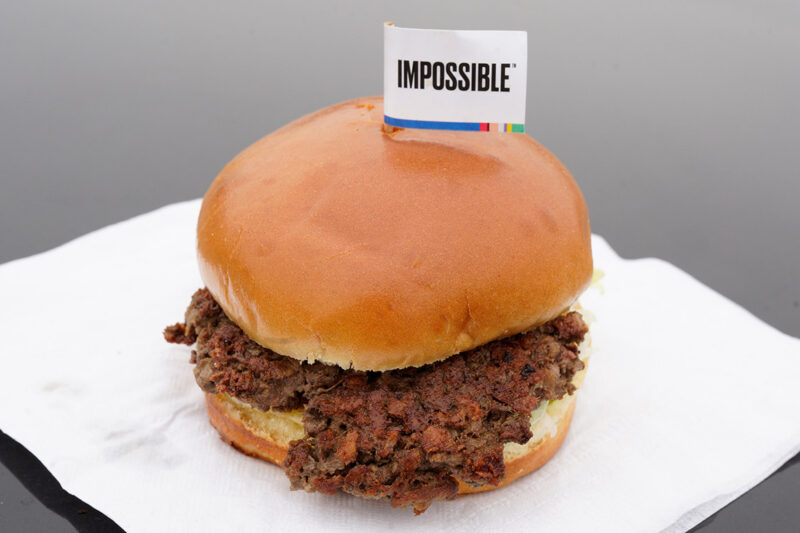Arkansas Made It Illegal to Call a 'Veggie Burger' A 'Burger.' We're Suing.


UPDATE: On December 11, 2019, a federal court granted our motion to block the Arkansas law while the underlying challenge proceeds.
The state of Arkansas thinks youโre confused about whether a veggie burger comes from a cow. In fact, it thinks youโre so confused that it a making it illegal for companies to use words like โmeat,โ โroast,โ and โsausageโ to describe products that are not made from animals. Under the law, it doesnโt matter if those words are modified by โvegan,โ โveggie,โ or โplant-based.โ
Rather than focusing on genuine consumer concerns โ such as rising healthcare and education costs โ Arkansas politicians have decided to take on an imaginary crisis: confusing a veggie burger for a hamburger, or almond milk for cowโs milk.
Why? To โprotect the agricultural producers in the state,โ one of the lawโs proponents admitted.
Not only is Arkansasโ latest law absurd and unnecessary, itโs also unconstitutional. It violates the First Amendment by censoring truthful speech in order to protect the economic interests of the meat industry. Together with the Good Food Institute, the Animal Legal Defense Fund, and the ภฯฐฤรลฟชฝฑฝแน๛ of Arkansas, we filed a lawsuit today on behalf of Tofurky challenging the law.
From to , consumers are increasingly interested in alternatives to food products derived from live animals. Right now, most of those alternatives are made from plants. But companies are also investing in technologies that cultivate meat from animal cells, effectively allowing them to make beef without the cow. The meat and dairy industries are worried about these new competitors, identifying them as one of the โโ the animal meat industry faces in 2018. But instead of competing in the free market, industry groups have enlisted friendly state legislatures and regulators to give them an upper hand. Over the past year, states throughout the country, including Missouri, Mississippi, Louisiana, and South Dakota, passed a new of meat censorship laws that prohibit companies from using terms like โveggie bacon,โ โcauliflower rice,โ or โalmond milk.โ
The lawsโ proponents insist that theyโre just trying to prevent consumers from being misled. One former FDA commissioner memorably that almond milk is a contradiction in terms because โalmonds donโt lactate.โ But consumers know that, of course, and itโs absurd to suggest otherwise. As Republican Senator Mike Lee explained, โNo one buys almond milk under the false illusions that it came from a cow. They buy almond milk because it didnโt come from a cow.โ
Businesses often rely on figurative language to help communicate information about the flavor, texture, or appearance of their products. Consumers know that โpeanut butterโ is not made from cows, but the productโs name efficiently informs them that it spreads like butter. โVeggie baconโ is appealing to consumers who enjoy the distinctive taste, smell, and crunch of conventional bacon, but who prefer plant-based foods for any number of personal reasons. If companies are forced to describe their products as โsavory plant-based protein,โ consumers are likely to be much more confused about exactly what it is theyโre putting on their plates. And thatโs the real purpose of these label censorship laws: creating confusion to protect favored economic interests.
But the First Amendment does not allow the government to censor speech in order to pick winners and losers in the marketplace. After all, consumers rely on the free exchange of truthful information to make their own choices. As the Supreme Court put it in a landmark recognizing constitutional protection for commercial speech, โ[s]o long as we preserve a predominantly free enterprise economy, the allocation of our resources in large measure will be made through numerous private economic decisions. It is a matter of public interest that those decisions, in the aggregate, be intelligent and well informed. To this end, the free flow of commercial information is indispensable.โ
In other words, when the government plays word games to prevent businesses from communicating truthfully about their products, consumers are ultimately the ones who suffer.
Arkansasโ law, and similar laws in other states, must be struck down.


